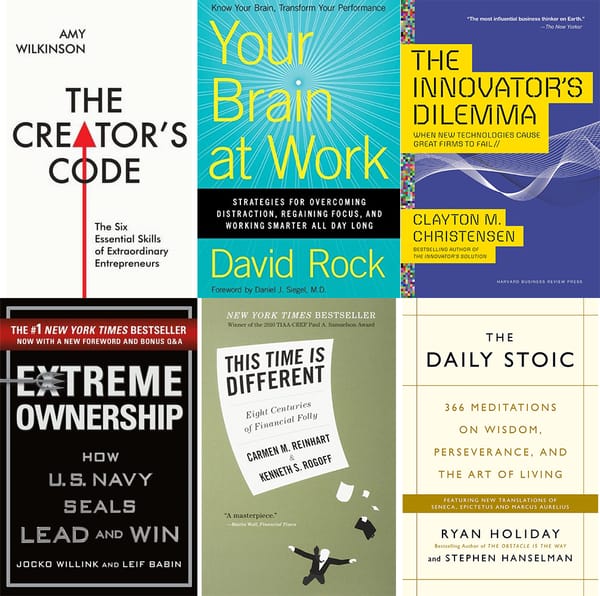12 reasons why scientists can become good entrepreneurs

Introduction
Research is all about the search for knowledge and insight. Many PhD students in the natural sciences believe that they need an MBA or years of experience in industry to successfully start a company. But in my opinion, this is not true: scientists inherently bring a variety of skills and attributes that can make them excellent entrepreneurs.
Sure, additional knowledge and experience are always an advantage. But don't underestimate the potential that lies in scientific education and mindset. In this article, I would like to show why I firmly believe that more scientists have what it takes to become successful entrepreneurs.
1) Experimental Mindset as a fundament
Scientists have experimentation in their blood. This skill is invaluable when starting a business. As a founder, you are constantly testing new ideas, formulating hypotheses and testing them in a structured way. The scientific method that researchers use every day can be applied to the development of business models, products and marketing strategies. The ability to experiment efficiently and systematically is a critical advantage in the fast-paced start-up world.
2) Deep expertise as a background of competence
Scientists are characterized by their deep expertise in their field. They are not just superficially familiar with their subject, but have a deep understanding of complex interrelationships. This ability to thoroughly analyze technical issues and not shy away from difficult problems is invaluable in the business world. Especially in technology-driven industries, this expertise can be the key to developing innovative solutions that set you apart from the competition.
3) Resilience through re-search
Failure is a fact of life in the laboratory. How many experiments must be repeated before they succeed? I was once told: "Research is called research, not search, because you repeat everything. Scientists learn early on that failure is not the end of the line, but an important learning opportunity. This natural culture of failure is exactly what characterizes successful entrepreneurs. The ability to bounce back from setbacks, learn from mistakes, and keep going is invaluable in the startup world. Scientists already possess this resilience and are therefore ideally equipped for the ups and downs of entrepreneurship.
4) The ability to learn quickly as a competitive advantage
Research requires constant exploration and learning of methods and analysis. This ability to quickly learn complex new topics is invaluable in entrepreneurship. As a founder, you are constantly faced with new challenges - be it in finance, marketing, human resources or product development. The experience of independently researching complex topics as a Ph.D. student prepares you for this challenge, even if the relevant knowledge is not taught in science courses.
5) Independence as the cornerstone of success
Successfully completing your Ph.D. requires a high degree of independence. Scientists are used to working independently, managing projects and delivering results. This ability to self-organize and work independently is essential in entrepreneurship. As a founder, there is no predetermined career program - you are on your own and have to make decisions, set priorities and take responsibility. The autonomy acquired in science forms a perfect basis for this.
6) Analytical thinking in complex situations
The analytical skills that scientists develop in their training are invaluable in business. Whether it's market analysis or creating financial plans, believe me, from a practical perspective, it's peanuts compared to someone who has analyzed electrophysiological data from the brains of live mice or the spectra of planets light-years away. The ability to interpret and draw conclusions from complex data is critical. For someone used to analyzing highly complex scientific data, business analysis is often relatively easy to master.
7) Striving for autonomy as an entrepreneurial drive
The academic freedom that scientists enjoy has many parallels with entrepreneurial freedom. Both worlds offer the opportunity to pursue one's own ideas and work independently. This striving for autonomy, which drives many scientists, is also an important motivation for successful entrepreneurs. The desire to realize one's own vision and work independently can be a strong driver of entrepreneurial success.
8) Experience in dealing with financial challenges
Academic research is often characterized by scarce resources and financial uncertainty. Scientists learn early on to work with limited resources and to find creative solutions. This experience is very useful in entrepreneurship, especially in the early stages of a company. The ability to deal with financial pressures, use resources efficiently, and stay focused despite uncertainty is essential for founders. The economy and efficiency acquired in science can become a decisive competitive advantage in the business world.
9) Team competence through respectful interaction between experts
Scientists may have individual projects, but they always work in teams and help each other. The ability to coordinate and consult with experts on an equal footing is essential to leading start-up teams. Although there is healthy competition within the scientific community, there is a fundamental mutual respect for each other's knowledge and skills. This respect for each other is a basic requirement for a modern management culture.
10) Flexibility and creativity through interdisciplinary thinking
Scientists often work on projects that span multiple disciplines. They are used to bringing together expertise from different fields to solve complex problems. This ability helps them in entrepreneurship, where it is often necessary to look beyond one's own expertise and integrate innovative approaches from different perspectives. Interdisciplinary thinking fosters flexibility and creativity, both of which are critical to building a successful start-up.
11) Strategic mindset through long-term thinking
Scientific research requires a vision, a hypothesis of what the future might look like, as well as patience and perseverance, as many projects take years to produce tangible results. Scientists are used to pursuing long-term goals and accepting setbacks as part of the process. This mindset is also essential in entrepreneurship, where a clear vision is needed to appreciate even small, slow steps in the right direction and to step on the gas when an opportunity arises.
12) Purpose as a driver of sustainable success
Scientists are usually strongly driven by a higher purpose - the pursuit of knowledge and the desire to make a contribution to progress. This purpose-driven mentality can also be found in the most successful entrepreneurs. They don't just start a company to make money, but to create real added value for society with their ideas and products. This intrinsic motivation can make the decisive difference in difficult times and lead to sustainable success.
Conclusion
There is no question that scientists still have a lot to learn for a successful entrepreneurial career. For example, developing a good business instinct along with an analytical mindset, an awareness of the need for financial sustainability, and the ability to prioritize are important aspects to master.
However, the biggest hurdle often lies not in these learnable skills, but in scientists' confidence to successfully apply their knowledge and skills outside of an academic context. It is time for scientists to recognize the valuable tools they bring to entrepreneurship.
Scientists are the source of innovation. Every day, laboratories and research institutes generate new knowledge that has the potential to create groundbreaking products and services. And scientists can be not only the guardians of the source, but also - if they have the courage! - they can also be the ones who turn a small trickle into a stream that feeds the sales mills of the economy.
My appeal to all scientists out there: Take the plunge into entrepreneurship! Your skills and knowledge are not limited to the lab or the classroom. The world needs your innovation, your thinking, and your solutions. Use your unique strengths to build companies that are not only commercially successful, but also make a real contribution to progress.
And for those who want to learn more about how scientists can make the transition from lab bench to business: Subscribe to my newsletter! I regularly share tips, stories and resources that can help you on your journey to becoming a successful entrepreneur.




